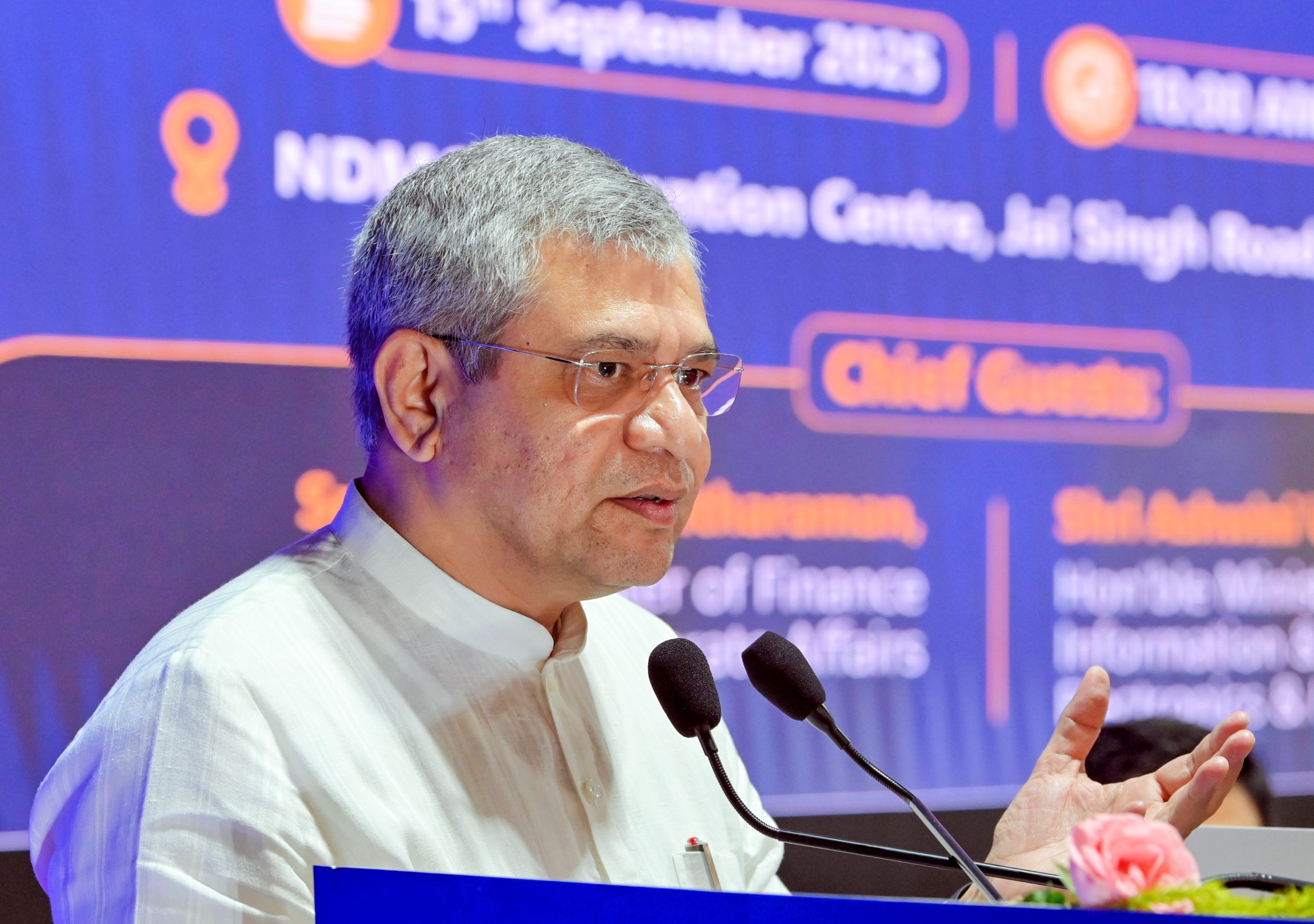India will host the next edition of the AI Impact Summit in February 2026, Union Minister for Electronics and Information Technology Ashwini Vaishnaw announced on Monday. The summit will focus on the safety and impact of artificial intelligence and follows the previous edition co-chaired by Prime Minister Narendra Modi in Paris.
In preparation, NITI Aayog held a conclave to showcase best practices of AI applications in districts across India. The Minister highlighted how AI-driven initiatives have improved learning outcomes in education, strengthened agriculture, and enhanced healthcare services.
Releasing the report “AI for Viksit Bharat: The Opportunity for Accelerated Economic Growth”, NITI Aayog and the NITI Frontier Tech Hub outlined how AI can accelerate India’s economic transformation. The roadmap estimates that AI adoption across industries and research innovation could bridge nearly half the growth gap, helping India move from a projected GDP of USD 6.6 trillion to USD 8.3 trillion by 2035.
NITI Aayog CEO B.V.R. Subrahmanyam said AI could be the decisive lever for India to achieve and sustain an 8 percent-plus growth trajectory. The report identifies two major growth drivers: industry-wide AI adoption contributing 30–35 percent of growth acceleration, and AI-driven R&D adding another 20–30 percent.
Banking, financial services, and manufacturing have been highlighted as key sectors to benefit immediately from AI integration. AI is expected to unlock USD 50–55 billion in additional value in financial services and USD 85–100 billion in manufacturing by 2035. Future opportunities include AI-assisted drug discovery, next-generation automotive components, and software-assisted vehicles.
Union Minister Ashwini Vaishnaw underlined that AI, like the Internet, is set to fundamentally change the way people live, work, and consume. He emphasized India’s readiness to be a frontrunner in frontier technologies, noting the government’s focus on research, development, and a strong talent pipeline.
Citing the semiconductor mission as an example, the Minister said 278 institutions across the country are already training students with cutting-edge semiconductor design tools, with several chips manufactured at the Semiconductor Laboratory in Mohali.
He stressed that India’s focus on AI, semiconductors, telecom, biotech, and other critical technologies will be crucial for securing its position as a global technology leader in the decades ahead.














